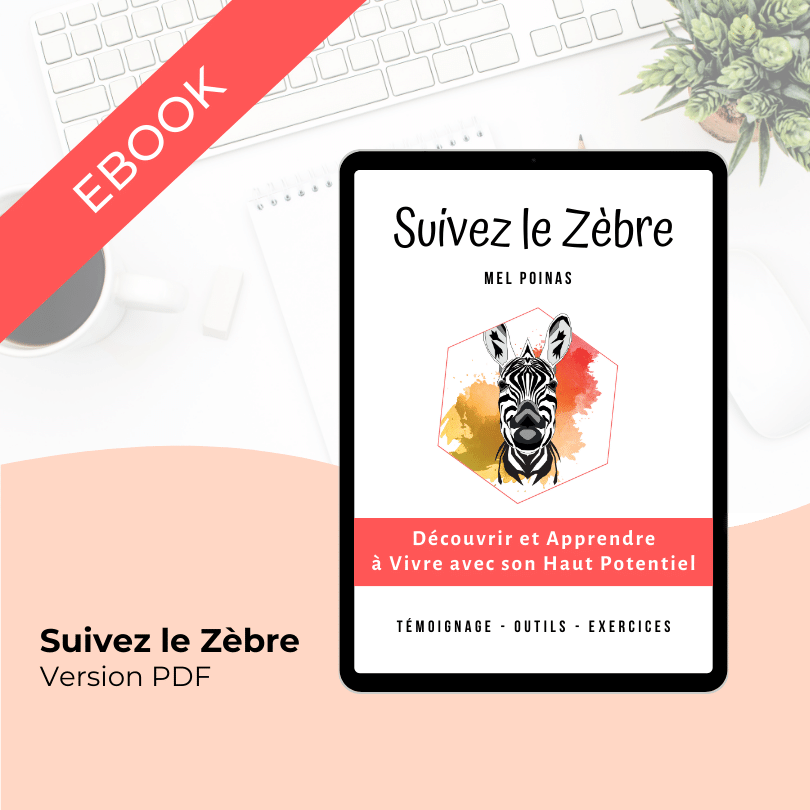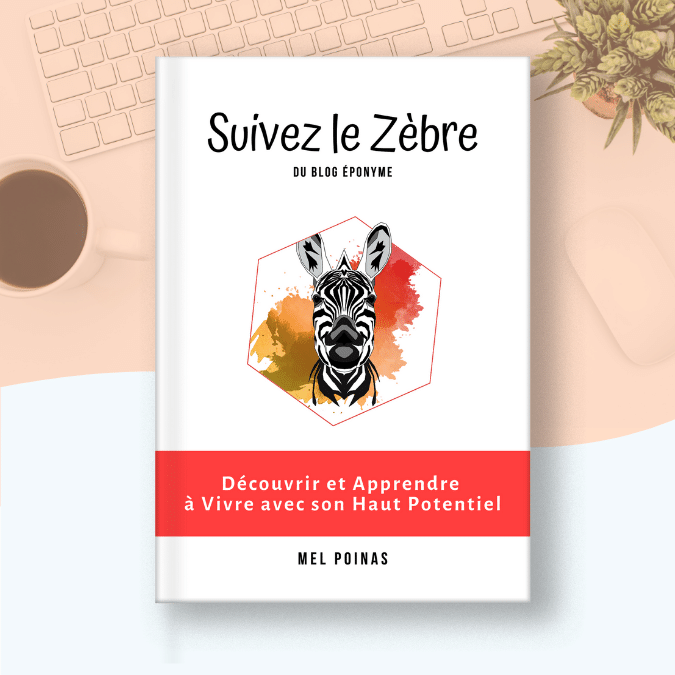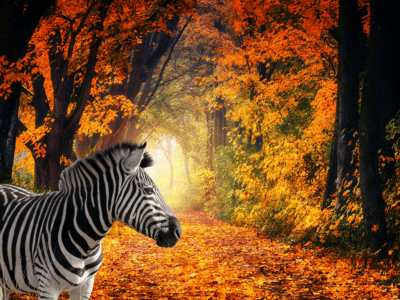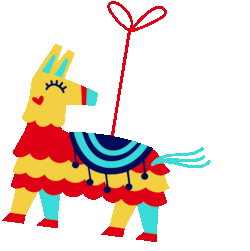Surviving the change of season (and Containment!)
Here we are, Autumn is here and the time change that goes with it! When I was young, an unaware precocious child, I had the impression that my infernal self was waking up in November.
It’s like I’m becoming the worst version of myself.
As the years went by, I came to dread that dreadful month of November. I hated theautumn season, which I associated with a big depression. I didn’t yet know I was gifted. I discovered I was a zebra the year I turned 30.
Step 1: Understand why we hate the change of season!
This phobia of autumn began when I was about 10 and lasted until I was 30. I’ve been annoyed with the time change and falling leaves for almost 20 years.
But why? Why couldn’t I stand this terrible season?
Like many HPIs, as a good old high-potential profile, I think a lot and all the time. I analyze everything. I finally stopped reading Cosmo, Femme Actuelle, Passeport Santé and Grazia. Clearly the 5 super tips for surviving the time change haven’t worked on me over the last ten years.
In any case, vitamin C and magnesium are not enough to maintain my positive summer attitude…
I’ve got the zebra by the horns… And I did what I always do when there’s a question: I made a list! I’m a sucker for lists.
I’ve listed everything that’s well and truly rotten about the change of season from summer to autumn.
Why don’t we like the change of season from summer to autumn?
The following non-exhaustive list is entirely personal and can be a little off the wall. I’m warning you because some of you may be surprised.
As a zebra, undetected HPI I think I used to dislike autumn for the following reasons:
– the time change (which is the most terrible!).
It’s dark at 5pm… We feel like we’re missing the sun. It takes two weeks to recover from the one-hour time difference.
– the weather, which is turning rotten. We can’t get any fresh air and it’s making us bored.
– Nature changes, trees lose their leaves, everything slows down and the green (of hope) gives way to brown and gray, reminding us of the earth.
– The end of the year is fast approaching, and since we can feel the end in our heads, and we don’t like it when things come to a halt, it also puts us in a state of anticipation. Depression mode! Another year is over, it goes by too fast and you feel even older than last year, and you don’t like feeling like you’re getting old (because you’re getting closer to the end!).
– Finally, the four points above create a kind of general popular malaise that makes everyone grumpy, and as a result, part of the population also turns into the worst version of itself.
Basically, during the change of season we feel tired and old!
But for HPI, zebra, gifted, intellectually precocious children, high-potential, philo-cognitive, atypical profiles and so on, isn’t the time change and the change of season even more difficult?
The impact of the change of season on me as a zebra
When I didn’t know I was gifted, I tried to prepare myself for that dreadful month of November, but I just couldn’t do it. I was on edge. It’s as if the emotional gauge has reached its peak. I couldn’t stand anything, neither the others nor myself. Everything irritated me.
I’m a former top-level player, I was in a training center until I was 18. Every year, without exception, I’ve injured myself between October 20 and December 5… I haven’t gone a single season without injury! It’s as if my body is overflowing with emotions and cracking.
The ankle. Always the ankles.
The discovery of Lise Bourdeau’s book: Ton corps dit : Aime-toi !
If I look at Lise BOURBEAU ‘s wonderful book: Ton corps dit: Aime-toi! (I had warned that it would be perched at some point) to the term ankles I have the following definition:
“There’sa lack of flexibility in the way you take action, change direction, face the future.”
If I cross-reference this definition with that of the notion of accident, which is as follows: “having an accident is one of the ways you’ve used to neutralize your guilt. You think this way you’ll have paid the price for having declared yourself guilty. You don’t have to be so demanding on yourself, and you can allow yourself to make mistakes and, above all, to have limits..”
Autumn reminded me of my limits! My mental and physical limits! I couldn’t accept being tired and underperforming… And crack, the wound. As if because I couldn’t make the decision on my own, my body was forcing me to!
People often say: it’s important to listen to yourself… But who’s really listening? And what are the instructions for listening to yourself? How do we listen to each other?
Understanding our emotional needs to understand our physical needs
Lise’s book helped me understand what my body was trying to tell me, but I must admit that before this new bedside book, the emotion-body relationship was hyper-complicated…
I recommend Lise Bourdeau ‘s book for understanding the emotional meaning behind our symptoms and illnesses (le mal-a-dit):
With hindsight and the realization that I’m a high-potential person, I know that this heightened sensitivity that used to awaken every October, I didn’t accept it, I didn’t understand it and I didn’t want it.
I wanted to feel and be normal!
I refused to accept all the emotions heightened by the arrival of this new season… It’s as if during this autumnal transition period, I become completely cyclothymic. Suffering from crazy mood swings!
The beginning of autumn marked a sort of inner battle between the me that I really was, which obviously strongly wished to be discovered, and the false self that refused this difference!
But then, why did I feel all those emotions when Autumn arrived?
I’ve been thinking about all the above points… In the end, the change of season is a matter of feeling and perception.
Step 2: Accept that human beings also have their own rhythm
As zebras, we are hypersensitive to our environment and the way the world turns. So, like the rest of nature, we tend to slow down… Let’s not forget that human beings are basically living beings!
So obviously, if all living beings go into quiet mode in autumn, or even mega-quiet mode in winter, we can’t go all out like in spring or summer.
The time change is really rotten, and other living beings aren’t affected by it because they don’t have watches! It’s really a human thing, this time change… But I tell myself that our Scandinavian friends have far less sun than we do, and they’re doing just fine!
In fact, we’ve all heard of HYGGE fashion: happiness à la Danoise! The Scandinavians have really understood everything…
HYGGE: Happy as a Dane
Today, I have a completely different view of autumn: I’m going into slow life mode! And in Danish HYGGE mode too. 🙂
What is HYGGE anyway?
In the Middle Agesthe word hygge meant “to think” and then “maturely considered “. An the 19th century, following the loss of territory and various defeats, ” the Danes began to identify with smallness”. and give great importance to the word hygge. Hygge is “the feeling that you’re safe, sheltered from the world, and that you can let your guard down”; it’s “a survival strategy”. “. Wikipedia
Coincidence? Um, I don’t think so! 🙂
Hygge is above all an art of living and a philosophy of life linked to optimism. The idea is to create warm moments to turn the little joys of everyday life into happiness with a capital B. Gone are the picnics by the lake and the barbecues, but that’s okay, I’ve always loved hanging out on my sofa with a good plaid and a hot cup of herbal tea! I put candles everywhere and fall asleep at 10pm when it’s not 9:30pm ^^.
On weekends, a walk in the forest (sorry for the city dwellers who live in the COVID locked up in the city, I live in the mountains in the middle of the forest), mulled wine and a raclette party (for 2 or on video!) It’s still more fun than light therapy and vitamin cures…
Actions to survive the month of November.
So this November, we’re changing our habits. We’re not taking the time becausewe spend all our time running around.
We also take the opportunity to refocus on ourselves:
We take the time to read, watch films and series, take naps. Learn how to work out in front of the TV, Véronique and Davina (Gym Tonic) style. We take our cat, dog or guinea pig in our arms and cuddle it until it wears out the hairs on its back.
Why do I love autumn and the change of season?
Yes, yes, yes, after 20 years of shunning Autumn, I couldn’t understand why I felt like I was changing from mid-October to mid-December… Now I get it!
Autumn was a metaphor for change and decline. The end of summer, the end of cool things, the end of nature in bloom, the end of the coming year… Bad Mood! With all my over-empathy, I was feeling this change too intensely and I didn’ t want to accept having a slump, slowing down, seeing this nature fade to death… In fact, I was afraid of death, of the end, of failure. It was as if this season reminded me of something that made me terribly uncomfortable.
I LOVE AUTUMN!
I love nature deeply. More and more, I feel I love it more than humans. Everything is simple with nature. It’s self-sufficient, living out its cycle at its own pace. In fact, while we’re all cooped up like pestilence, she’s continuing her cycle, even taking advantage of this global freeze frame to recharge her batteries a little more than usual.
It reinvents itself every year and never produces waste. Falling leaves are absorbed by the soil. Magic! A taste for the simple things in life. I’ve never seen anything as beautiful as what Nature produces.
Today, if I love Autumn, it’s because I’ve understood who I am, and I accept it, just as I now accept the arrival of this beautiful season.
Discovering that I was HP gave a lot of meaning to my life.
And Nature is never more beautiful than in Autumn!

Beautiful green leaves that turn red, then yellow, then fall to form multicolored carpets on the paths. The forest walks at the moment are incredible. I’d never noticed it before. By opening my eyes to who I was, I opened my eyes to what was around me. Something clicked.
Human beings (and their absurd standards such as the inordinate quest for performance and perfection) are no longer my model, and I no longer try to conform to them. I live by the rhythms of nature and the seasons.
Nature’s rhythm is cyclical. In autumn, like the trees, I go into vegetative rest! No, I’m just kidding, but I’m taking the opportunity to refocus on my inner projects…
Introspection, calm, rest, meditation, pleasure.
While we wait for a nice blanket of snow and snowshoe outings, I’m digging out the Koala romper and the big muffin socks! It’s also cool these two months when I officially give myself the right to do nothing. At least to do less than usual…
What about at work?
Yes, because it’s easy to say! But what about at work? Can you go to your boss and say: yes, I’m soft, I’m preparing for hibernation and as it gets dark at 4:30 pm, I’m absolutely no longer productive from 3 pm onwards?
Maybe that’s why Scandinavians start at 7am and finish at 4pm? In any case, when it comes to Happy Management and well-being in the workplace, there’s clearly something to be said for seasonal work rhythms!
Conclusion for surviving the change of season
My advice is, as always, to listen to you (we’ll come back to that). We’re thinking of Lise’s book, which is really excellent! Are you tired? Feeling soft? It’s normal, your body as a living being adapts to the change of season. Which means you also have to change your rhythm…
– Sleep more, try to go to bed earlier.
– Bring softness into your life.
– Invest in a large comforter and good pillows.
– Create a cocooning corner in your home to make you feel at home.
– Invest in good organic herbal teas or, better still, have your own herbs on hand! A dash of honey is the perfect magic potion for a good night’s sleep.
– Become a Danish Viking for a few months.
– Last but not least: >> try to take advantage of confinement to learn how to do nothing.
In short, get ready for winter and take care of yourself!
Thank you all for being on Follow the Zebra! The blog has a special place in my life, it has helped me enormously, and thanks to you, I’m continuing my writing therapy.
You can also find more information, resources and tools on Giftedness in Mel POINAS‘ book. With a lot of humor, Mel tells the story of the discovery of her giftedness and the routines she put in place to finally find her place!

Le livre
Écrit par une HPI !
Un témoignage et des solutions concrètes pour découvrir, comprendre et apprendre à vivre en étant HPI.
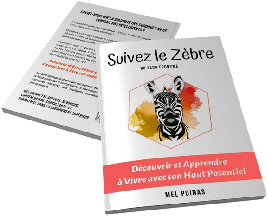


To go further, you can read
- The best books about High Learning Potential
- Personal development
- Gifted, learning to manage your fears
- Managing hypersensitivity when you’re gifted
- Characteristics of High Potential

